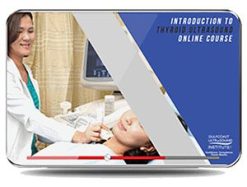28th Annual Diabetes Day 2024 – Cleveland Clinic (Videos with subtitles + Slides)
$100,00
This Product is shared via google drive download link, So please share your correct Gmail id while placing the order .Please note that there are no CME points or certificate associated with this course Samples for Courses Can be found here : Free Samples Here!
Overview
The 28th annual Diabetes Day: Therapeutics, Technology and Surgery is presented by the Cleveland Clinic Department of Endocrinology, Diabetes and Metabolism to provide up-to-date reviews of management strategies and research on the complications of diabetes. Key topic areas that will be addressed include:
- A review of therapeutic options to manage both Type 1 and 2 diabetes and their complications, including a pump update, new insulins, and continuous glucose monitoring updates.
- New data regarding metformin in pregnancy will be discussed.
- Importance of maintaining muscle mass during obesity management.
- Gastroparesis associated with GLP-1 therapy and its effect on pre-op management.
- New roles for GLP1 receptor agonists SGLT-2 inhibitors and mineralocorticoid receptor antagonists in preserving cardiac function and preventing strokes.
This year’s curriculum will also feature discussions about:
- Research from Cleveland Clinic on non-nutritive sweeteners.
- New treatment for nephropathy.
- Pre-prandial vs post prandial exercise.
- Diabetes and dementia.
- Mental health and diabetes.
- Effects of high-fat and high-protein diets on glucose control.
- Dermatologic considerations in diabetes.
The goal of this symposium is to increase practitioners’ competence and clinical performance in treating diabetes and its complications and, ultimately, to improve patient outcomes.
There will be an optional workshop on continuous glucose monitoring designed for healthcare providers to advance the care of their patients with diabetes using continuous glucose monitoring (CGM) and other diabetes technology.
Attendees will be able to:
- Describe the efficacy and side effects of therapeutic interventions for Type 1 and Type 2 diabetes, including new insulins, closed-loop insulin pumps, smart pens, and islet and pancreas transplants.
- Analyze new therapies and critically appraise the roles of SGLT-2 inhibitors, GLP-1 receptor agonists, and mineralocorticoid receptor antagonists to preserve renal and cardiac function.
- Assess goals and management strategies for treating renal insufficiency in patients with diabetes.
- Evaluate the impact of weight loss treatment options, including muscle mass preservation, in patients with Type 2 diabetes.
- Critically appraise the effects of non-nutritive sweeteners.
- Discuss the impact and define treatment strategies for dermatologic manifestations, neurological impairment such as dementia and stroke, and managing pregnancy for patients with diabetes.
Who should attend?
This activity is designed for primary care physicians, endocrinologists, diabetes educators, pharmacists, nurses, nurse practitioners, physician assistants, and other health care professionals who care for patients with diabetes.
Related products
ENDOCRINE / NUTRITION
OnExamination SCE in Endocrinology and Diabetes (Updated Feb 2023) (PDF)
HARVARD MEDICINE
ENDOCRINE / NUTRITION
ENDOCRINE / NUTRITION
ENDOCRINE / NUTRITION
ENDOCRINE / NUTRITION
ENDOCRINE / NUTRITION
Intensive Update with Board Review in Geriatric & Palliative Medicine 2023










